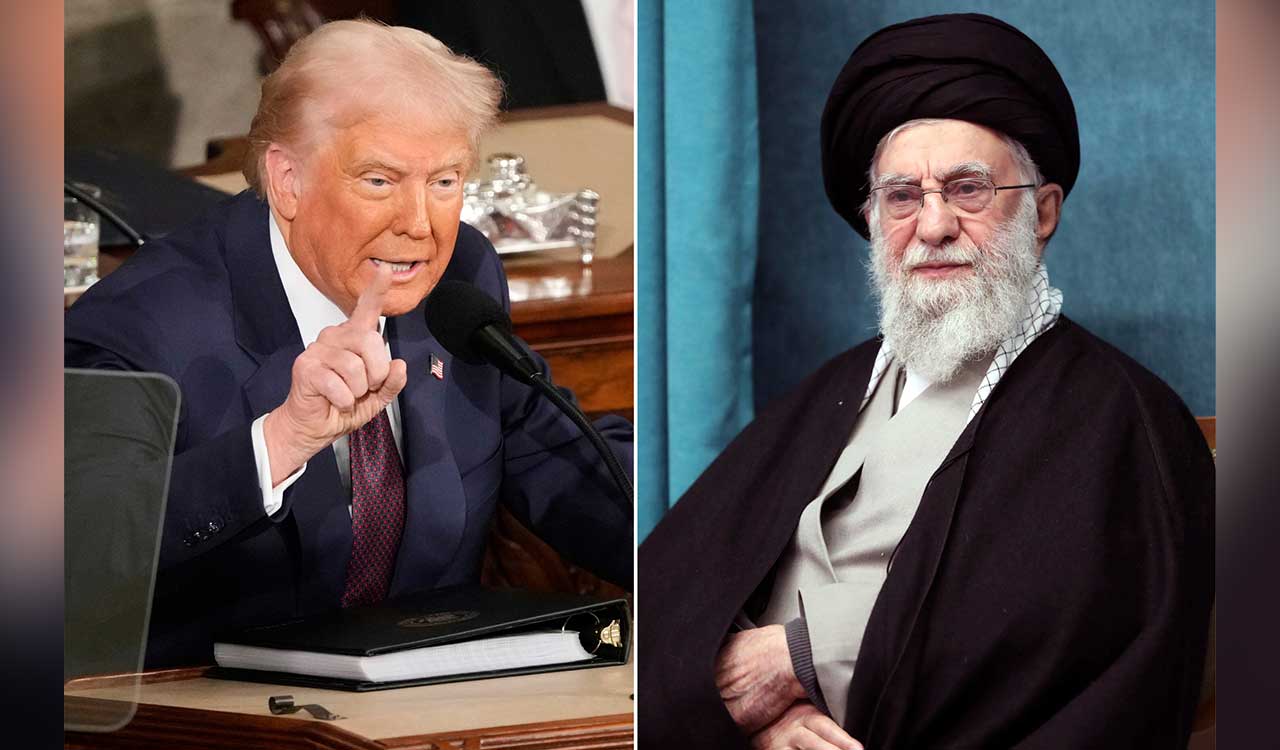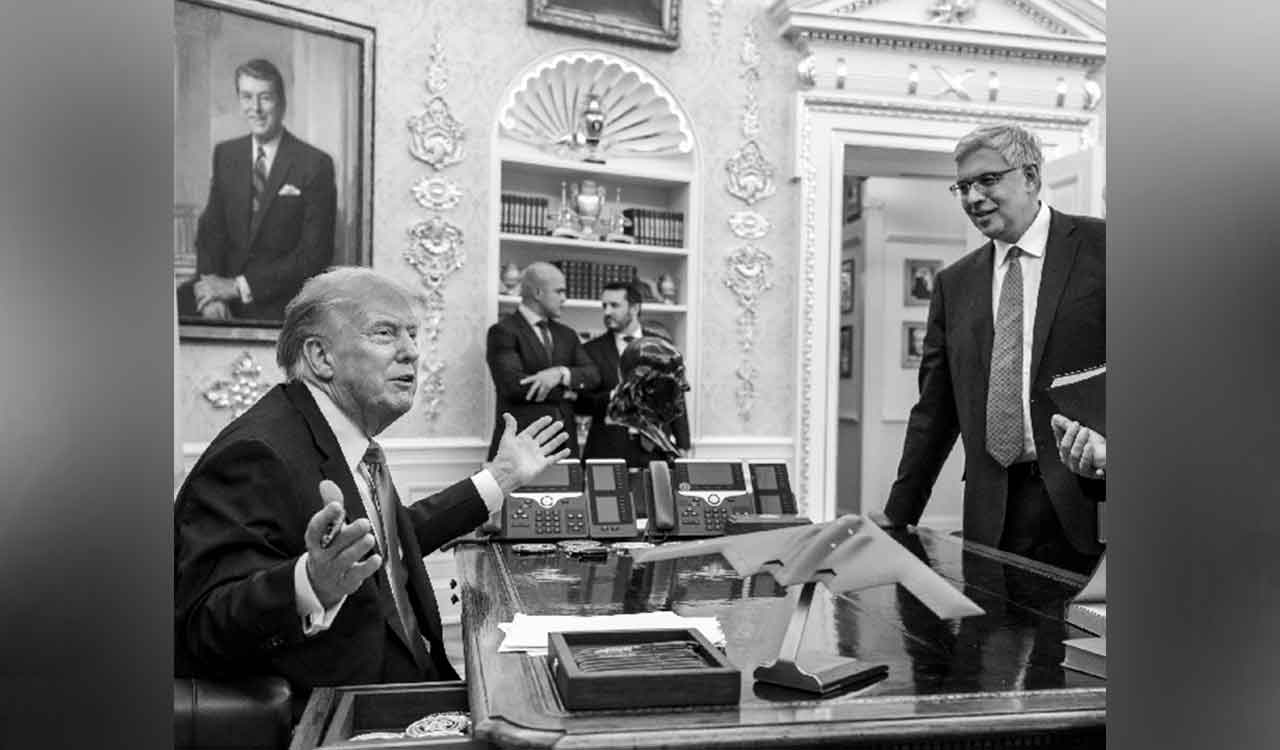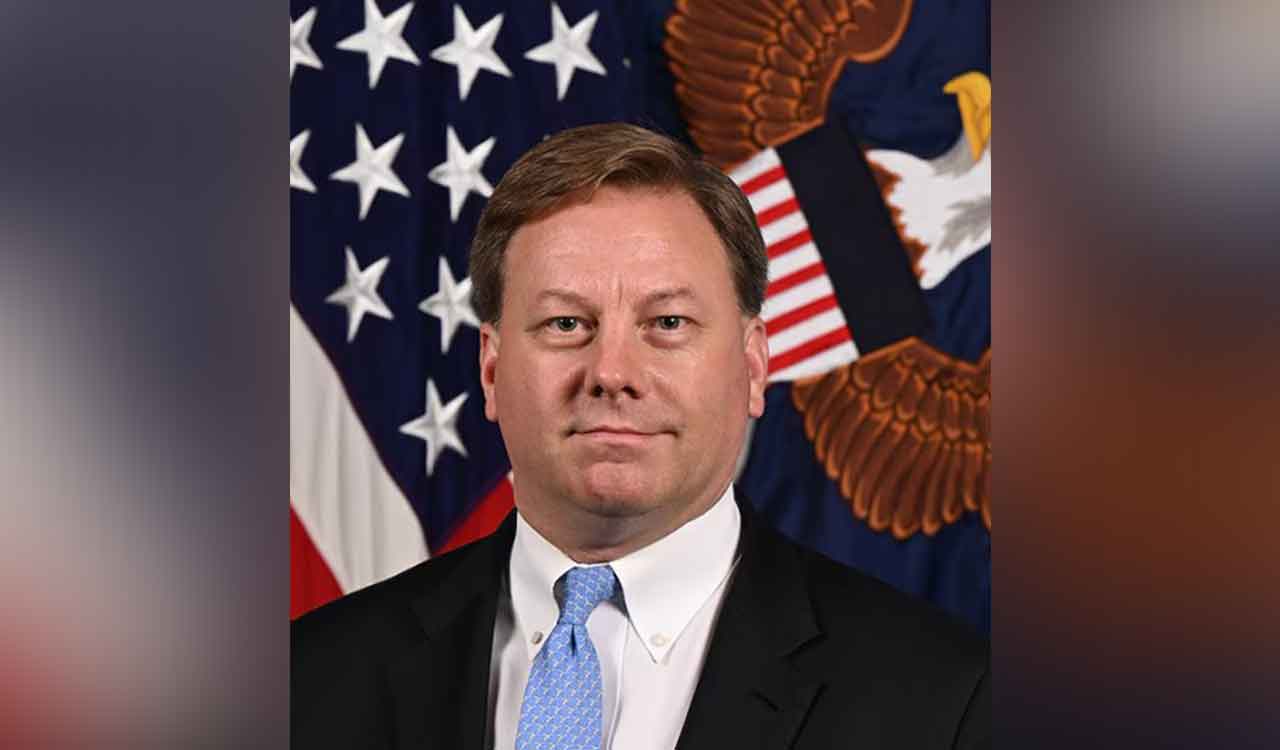Iran’s reaction awaited on Trump’s letter to Khamenei
Though Iran's Supreme Leader Ayatollah Ali Khamenei has said he's not interested in talks with a "bullying government,” its struggles with economic woes coupled with internal turmoil, and recent direct attacks by Israel, has put Tehran in a precarious position

Dubai: An Emirati diplomat earlier identified by Tehran as carrying a letter from US President Donald Trump seeking to jump-start talks over Iran’s rapidly advancing nuclear programme met on Wednesday with Iran’s foreign minister in the Iranian capital.
It is unclear how Iran will react to the letter, which Trump revealed during a television interview last week. Its intended recipient, Supreme Leader Ayatollah Ali Khamenei, has said he’s not interested in talks with a “bullying government.”
But Iran struggles with economic woes exacerbated by US and Western sanctions over its nuclear programme, and Trump has imposed more since he took office in January. That pressure, coupled with internal turmoil in Iran and recent direct attacks by Israel, has put Tehran in one of the most precarious positions its theocracy has faced since its 1979 Islamic Revolution.
“America threatens with military action, but in my opinion, this threat is irrational,” Khamenei said earlier. “Iran is capable of delivering a reciprocal blow, and it will certainly do so.”
Iranian State television showed Emirati official Anwar Gargash meeting with Iranian Foreign Minister Abbas Araghchi in Tehran.
Trump last week acknowledged writing a letter to the 85-year-old Khamenei. Trump has offered no details on what, if anything, was specifically offered to Iran in the letter. The move recalled Trump’s letter-writing to North Korean leader Kim Jong Un in his first term, which led to face-to-face meetings but no deals to limit Pyongyang’s atomic bombs and a missile programme capable of reaching the continental US.
The last time Trump tried to send a letter to Khamenei, through the late Japanese Prime Minister Shinzo Abe in 2019, the supreme leader mocked the effort. Abe ended up slipping the envelope under his leg in footage widely shared by Iranian state media to this day.
Before Gargash’s arrival, Khamenei called Trump’s letter “an attempt to deceive global public opinion.” “This person tore apart and threw out of the window finished and completed, and signed, talks,” Khamenei said. “How could one possibly negotiate with such a person?” He added: “If we wanted to build a nuclear weapon, America couldn’t stop us.”
Trump’s overture comes as Israel and the United States have warned they will never let Iran acquire a nuclear weapon, leading to fears of a military confrontation as Tehran enriches uranium at near weapons-grade levels of 60 per cent purity — something only done by atomic-armed nations.
Iran has long maintained its programme is for peaceful purposes, even as its officials increasingly threaten to pursue the bomb as tensions are high with the US over its sanctions and with Israel as a shaky ceasefire holds in its war against Hamas in the Gaza Strip.
Israel and Iran have traded direct attacks during the Israel-Hamas war, while partners in Tehran’s self-described “Axis of Resistance” are reeling after the assassinations of their leaders by Israel. In Israel, officials have suggested striking Iran’s nuclear programme now, something Trump has threatened while insisting he’d prefer reaching a diplomatic deal with Tehran.
Since Trump returned to the White House, his administration has said Iran must be prevented from acquiring nuclear weapons. A report last month by the UN’s nuclear watchdog said Iran has accelerated its production of near weapons-grade uranium.
Trump’s first term in office was marked by a particularly troubled period in relations with Tehran. In 2018, he unilaterally withdrew the United States from Iran’s nuclear deal with world powers, leading to sanctions hobbling Iran’s economy. Iran retaliated with attacks at sea — including one that it likely carried out and that temporarily halved Saudi Arabia’s oil production.
Trump also ordered the attack that killed Iran’s top general in a Baghdad drone strike in January 2020.
It is unclear how Iran will handle further pressure.
The Islamic Republic’s currency, the rial, has dramatically fallen in value. Unemployment and underemployment are rampant. Meanwhile, women have continued their defiance of laws on the mandatory headscarf, or hijab, and go without the head covering, two years after the death of a detained young woman, Mahsa Amini, sparked nationwide protests. AP
Related News
-
DMDK joins DMK-led alliance ahead of Tamil Nadu polls
2 mins ago -
Telangana High Court allows State, Centre three weeks to file counters on plea against GHMC split
9 mins ago -
Editorial: Big challenges for India’s Quantum leap
14 mins ago -
Opinion: And the Animal asked the Human…
23 mins ago -
Two Belgian Malinois sniffer dogs inducted into Kothagudem district police force
49 mins ago -
Casagrand Introduces Hyderabad’s First UPARTMENT with the launch of Casagrand Mandarin in Miyapur
53 mins ago -
Cheques distributed to women at Nava Women Empowerment Centre
1 hour ago -
Jagan alleges irregularities in Tirupati laddu ghee supply during Chandrababu Naidu’s tenure
1 hour ago




